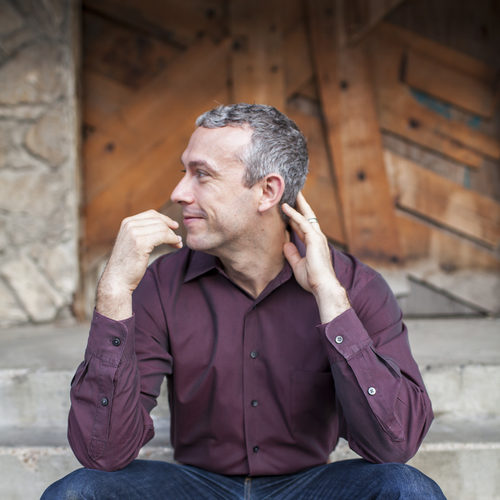
Does creativity respond to rules and do rules help the creative process?
This puzzling conundrum and more are revealed in this insightful conversation with composer Marcus Maroney, whose Concerto for Orchestra was commissioned by the River Oaks Chamber Orchestra to be premiered at the “Matchmaking” conductorless program on Saturday, February 13, at The Church of St. John the Divine.
At the request of executive director, founder and principal oboe Alecia Lawyer, Maroney’s work for chamber orchestra is inspired by the second movement of Bartók’s Concerto for Orchestra, which pairs woodwind instruments in virtuosic and quirky ways to highlight the colors within the large ensemble.
Maroney, who’s on the artist board of contemporary music presenter Musiqa, is on faculty at the Moores School of Music at the University of Houston. The tunesmith studied both composition and horn at The University of Texas at Austin and Yale School of Music. His main teachers were Joseph Schwantner, Ned Rorem, Joan Tower and Dan Welcher.
Q: You were aware that this ROCO commission for chamber orchestra was going to be performed without a conductor. How did that influence your writing?
Marcus Maroney: Rhythmic coordination was the biggest concern, and this led to an overall avoidance of overly complicated and oblique rhythms in the score, which tend to crop up more in my other pieces.
This is most apparent in the first and third movements, where a constant pulse and meter are audible. Since the second movement, a set of variations, changes most frequently, I imagine this might take the most time to put together without a conductor.
It was a great challenge: How do I make the rhythms interesting while maintaining a frame of reference that allows the orchestra to stay together without being able to watch a conductor’s baton?
Q: Talk about your environment when you compose. Do you sit at the piano? Computer? Do you write on manuscript? Have a specific habit? Perhaps an expensive coffee concoction from anywhere other than Starbucks?
MM: I’m very old-fashioned: I compose with pencil and manuscript paper, always at the piano. For an orchestra piece, it’s in short score, so usually three to six staffs on which I compress the entire orchestral texture. I always know who’s playing what, but I have a feeling if another person had to work from my pencil scores, my abbreviations and penmanship would make the music very difficult to decipher!
Q: When you start composing for a commission, where do you begin?
MM: Usually a commission will have some information that helps me begin. In the case of the Concerto for Chamber Orchestra, it was the connection to the Bartok and the fact that it wasn’t going to be conducted. This gave me some general gestures in terms of orchestration (winds in pairs) and rhythm.
One commission I wrote required a specific title, so that was quite a lot of information to begin with. The scariest commissions are those without any “rules” — sitting down with a blank sheet of manuscript paper and ultimate freedom is incredibly intimidating and frightening. In that case, I would come up with some rules for the piece and an overall goal that I want to achieve, musically, in the work. Guidelines are very useful to produce creative friction.
Q: How sure are you that what you write down will have your desired effect in real life? Do you often make edits and corrections?
MM: Performing on horn for such a long time was essential to becoming more confident that what I wrote would sound. I played horn in orchestra straight through graduate school and was lucky enough to play some of the big, colorful orchestral scores — Strauss, Mahler, Ravel, Stravinsky — and I devoured and internalized those scores, so I started with a wide palette of orchestral gestures that I knew were successful and could imitate (some might say “steal”!).
I also played in new music groups. Through those ensembles, I encountered many brand new scores, some of which contained some pleasant surprises. The challenge is to build upon the knowledge you’ve internalized, turning it into something personal.
I don’t usually make heavy revisions or edits; if I do, they are mostly cosmetic — a handful of changes in dynamics or voicing. There have been a few works where I’ve revised endings, since endings are so important to the effectiveness of a piece. I think there’s something to be said for having confidence in your first instincts.
Q: When you hear your piece live for the first time, is it exciting? Scary?
MM: It’s always both exciting and scary, especially hearing an orchestral piece for the first time. My biggest fear is always simple mistakes in the score — wrong notes, missing measures or clef changes, etc. Those can really eat up a lot of rehearsal time and create a bit of discomfort between composer and performers.
___
Make it a complete Valentine’s Day date night with “Social Supper with Chef Soren Pedersen.” Packages that include concert and dinner are $100 per person.

Leave A Reply